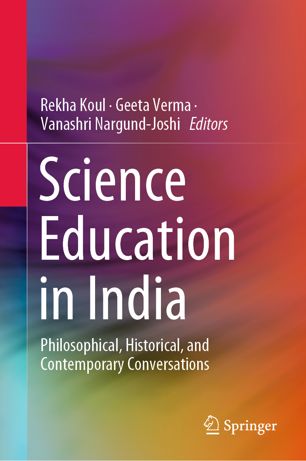Research Papers

How Can Action Research Sustain Systematic and Structured Thinking in Participating Teachers?
Action Research (AR) has been used worldwide as a professional development tool, especially for teachers. The fundamental premise of this work is that the Action Research Framework of Plan-Act-Observe-Reflect is aligned with systematic and structured thinking, lending itself as it does to enquiry, analysis, hypothesis and problem-solving of organisational issues. Through structured interviews with four teachers (three Mathematics, one Science) who had engaged in AR approximately a year prior to this research, this paper serves to explore possible outcomes of AR by posing questions such as: When teachers have conducted AR to address one or more of their day-to-day practices, does (or how can) their engagement with AR enable teachers to think systematically about and analyse critically any other issues—for a significant period thereafter? Does/how can the engagement with a sequential framework like AR empower them to sustain this structured way of thinking and acting a year or so after their AR is completed?
Neeraja Raghavan
Action Research (AR) has been used worldwide as a professional development tool, especially for teachers. The fundamental premise of this work is that the Action Research Framework of Plan-Act-Observe-Reflect is aligned with systematic and structured thinking, lending itself as it does to enquiry, analysis, hypothesis and problem-solving of organisational issues. Through structured interviews with four teachers (three Mathematics, one Science) who had engaged in AR approximately a year prior to this research, this paper serves to explore possible outcomes of AR by posing questions such as: When teachers have conducted AR to address one or more of their day-to-day practices, does (or how can) their engagement with AR enable teachers to think systematically about and analyse critically any other issues—for a significant period thereafter? Does/how can the engagement with a sequential framework like AR empower them to sustain this structured way of thinking and acting a year or so after their AR is completed?
Neeraja Raghavan
Karanam Bhaskar & Neeraja Raghavan (2017) – BRINGING EXCITEMENT INTO CHEMISTRY THROUGH ACTION RESEARCH
Poster presented at EPISTEME7 (https://episteme7.hbcse.tifr.res.in/) held at Homi Bhabha Centre for Science Education, Mumbai – Paper available here Paper Bhaskar
Poster presented at EPISTEME7 (https://episteme7.hbcse.tifr.res.in/) held at Homi Bhabha Centre for Science Education, Mumbai – Paper available here Paper Bhaskar
Reshma Kiran (2017) – ENLIVENING THE TEACHING AND LEARNING OF CHEMISTRY Poster presented at EPISTEME7 (https://episteme7.hbcse.tifr.res.in/) held at Homi Bhabha Centre for Science Education, Mumbai – Paper available here Reshma Kiran Paper
Kanchana Suryakumar, Hema Gowda and Shubha Venkatraman (2017) – ACTION RESEARCH ON MIXED AGE GROUP (MAG) CLASSES FOR MATHEMATICS IN MIDDLE SCHOOL – Poster presented at EPISTEME7 (https://episteme7.hbcse.tifr.res.in/) held at Homi Bhabha Centre for Science Education, Mumbai – Paper available here Mixed Age Group Action Research_final
Teaching Archimedes Principle to sixth graders without teaching mass, density, pressure, volume or buoyancy
Neeraja Raghavan TEACHING SCIENCE, Vol 63, No: 3, September 2017, pp. 39-48 TS 63-3 article – Teaching Archimedes principle2
Neeraja Raghavan TEACHING SCIENCE, Vol 63, No: 3, September 2017, pp. 39-48 TS 63-3 article – Teaching Archimedes principle2
Teacher empowerment through action research
Ratna Singamsetty, Neeraja Raghavan, 2015
Presented at the epiSTEME 6 conference at Homi Bhabha Centre for Science Education, Mumbai in December 2015
Ratna Singamsetty, Neeraja Raghavan, 2015
Presented at the epiSTEME 6 conference at Homi Bhabha Centre for Science Education, Mumbai in December 2015
